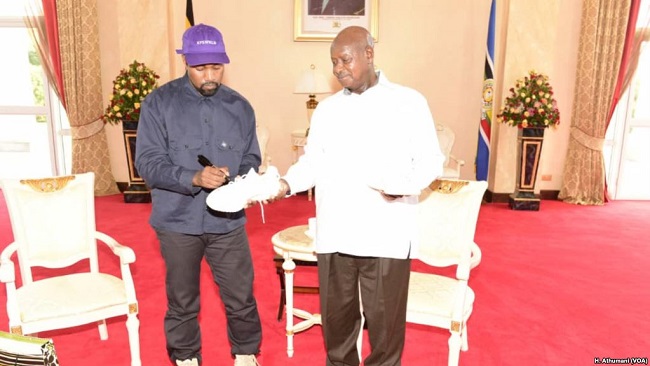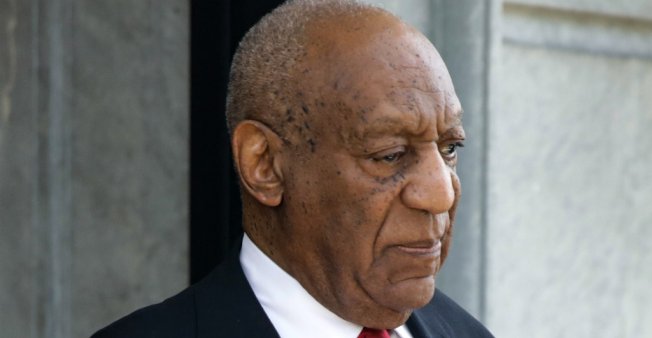8, November 2018
White House suspends press pass for CNN reporter after fiery exchange with Trump 0
The White House has suspended CNN correspondent Jim Acosta of his press credentials following his tense exchange with President Donald Trump during a press conference.
During Wednesday’s press conference at the White House, a combative Trump allowed Acosta, CNN’s chief White House correspondent, to ask his question only to cut him off shortly after and branding the journalist an “enemy of the people.”
A visibly angry Trump called Acosta a “rude, terrible person,” after he refused the president’s orders to sit down and give up the microphone during the conference one day after the US midterm congressional elections.
“CNN must be ashamed of itself having you working for them,” the president told Acosta. “You are a rude terrible person.”
Trump then asked another reporter to speak but Acosta refused to sit down. That prompted a White House aide to try to to pull the microphone from Acosta’s hands but the CNN reporter pushed her away and kept talking until Trump walked away from the podium as if he was going to leave the room.
Shortly after the heated moment, White House Press Secretary Sarah Huckabee Sanders announced on Twitter that Acosta was suspended for “placing his hands on a young woman just trying to do her job as a White House intern.”
“This conduct is absolutely unacceptable. It is also completely disrespectful to the reporter’s colleagues not to allow them an opportunity to ask a question. President Trump has given the press more access than any President in history,” she added.
“This unprecedented decision is a threat to our democracy and the country deserves better. Jim Acosta has our full support,” the network said in a statement.
Acosta also accused the White House of making up lies and said the real reason behind the decision was that Trump didn’t want “to be called out on his falsehoods.”
During the press conference, Acosta asked Trump why during his midterm congressional rallies he falsely called a migrant caravan moving towards the US an “invasion” while they were hundreds of miles away in Mexico and “posed no threat to the US.”
Trump insisted in response that the caravan was indeed a threat and he would do all in his power to stop it.
Acosta then tried to slip in another question about the ongoing investigation into Trump’s alleged ties with Russia and whether he was concerned about indictments now that Democrats were in control of the House of Representatives.
“I’m not concerned about anything with the Russian investigation because it a hoax… that’s enough! Put down the mic!” Trump said in response.
It was not Trump’s only scrap with the media during the press conference as he shut down several other reporters in the same manner and proceeded to once again accuse some media of being the “enemy” of American people.
Source: Presstv
Now that you are here
The Cameroon Concord News Group Board wishes to inform its faithful readers that for more than a decade, it has been providing world-class reports of the situation in Southern Cameroons. The Board has been priding itself on its reports which have helped the world to gain a greater understanding of the crisis playing out in Southern Cameroons. It hails its reporters who have also helped the readers to have a broader perspective of the political situation in Cameroon.
The Board wishes to thank its readers who have continued to trust Southern Cameroon’s leading news platform. It is therefore using this opportunity to state that its reporters are willing to provide more quality information to the readers. However, due to the changing global financial context, the Board is urging its readers to play a significant role in the financing of the news organization. It is therefore calling on its faithful readers to make whatever financial contribution they can to ensure they get the latest developments in their native Southern Cameroons, in particular, and Cameroon in general.
Bank transaction: Soter Tarh Agbaw-Ebai
Banking IBAN: GB51 BARC 2049 1103 9130 15
Swift BIC BARC GB22XX
SORT CODE 20-49-11, ACCOUNT NUMBER – 03913015 Barclay PLC, UK
The Board looks forward to hearing from the readers.
Signed by the Group Chairman on behalf of the Board of Directors
Soter Tarh Agbaw-Ebai
Email: soteragbawebai@gmail.com





























24, November 2018
Time for France to give back looted African art 0
African artworks held in French museums – richly carved thrones, doors to a royal kingdom, wooden statues imbued with spiritual meaning – may be heading back home to Africa at last.
French President Emmanuel Macron, trying to turn the page on France’s colonial past , received a report Friday on returning art looted from African lands.
From Senegal to Ethiopia, artists, governments and museums eagerly awaited the report by French art historian Benedicte Savoy and Senegalese economist Felwine Sarr, and commissioned by Macron himself.
It recommends that French museums give back works that were taken without consent, if African countries request them – and could increase pressure on museums elsewhere in Europe to follow suit.
The experts estimate that up to 90 percent of African art is outside the continent, including statues, thrones and manuscripts. Thousands of works are held by just one museum, the Quai Branly Museum in Paris, opened in 2006 to showcase non-European art – much of it from former French colonies. The museum wouldn’t immediately comment on the report.
Among disputed treasures in the Quai Branly are several works from the Dahomey kingdom, in today’s West African country of Benin: the metal-and-wood throne of 19th-century King Ghezo, the doors to the palace of Kign Gele, and imposing, wooden statues.
The head of Ethiopia’s Authority for Research and Conservation of Cultural Heritage, Yonas Desta, said the report shows “a new era of thought” in Europe’s relations with Africa.
Senegal’s culture minister, Abdou Latif Coulibaly, told The Associated Press: “It’s entirely logical that Africans should get back their artworks. … These works were taken in conditions that were perhaps legitimate at the time, but illegitimate today.”
The report is just a first step. Challenges ahead include enforcing the report’s recommendations, especially if museums resist, and determining how objects were obtained and whom to give them to.
The report is part of broader promises by Macron to turn the page on France’s troubled relationship with Africa. In a groundbreaking meeting with students in Burkina Faso last year, Macron stressed the “undeniable crimes of European colonization” and said he wants pieces of African cultural heritage to return to Africa “temporarily or definitively.”
“I cannot accept that a large part of African heritage is in France,” he said at the time.
The French report could have broader repercussions. In Cameroon, professor Verkijika Fanso, historian at the University of Yaounde One, said: “France is feeling the heat of what others will face. Let their decision to bring back what is ours motivate others.”
Germany has worked to return art seized by the Nazis, and in May the organization that coordinates that effort, the German Lost Art Foundation, said it was starting a program to research the provenance of cultural objects collected during the country’s colonial past.
Britain is also under pressure to return art taken from its former colonies. In recent months, Ethiopian officials have increased efforts to secure the return of looted artifacts and manuscripts from museums, personal collections and government institutions across Britain, including valuable items taken in the 1860s after battles in northern Ethiopia, Yonas said.
In Nigeria, a group of bronze casters over the years has strongly supported calls for the return of artifacts taken from the Palace of the Oba of Benin in 1897 when the British raided it. The group still uses their forefathers’ centuries-old skills to produce bronze works in Igun Street, a UNESCO World Heritage Site.
Eric Osamudiamen Ogbemudia, secretary of the Igun Bronze Casters Union in Benin City, said: “It was never the intention of our fathers to give these works to the British. It is important that we get them back so as to see what our ancestors left behind.”
Ogbemudia warned the new French report should not remain just a “recommendation merely to make Africans to calm down.
“Let us see the action.”
Source: AP